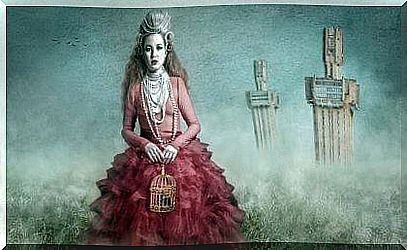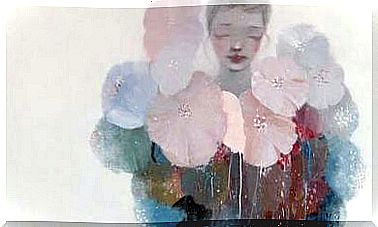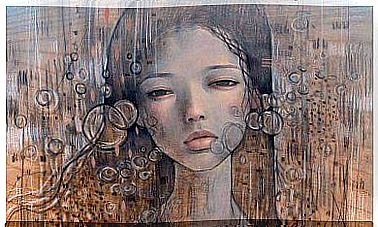When We Suffer Because We Don’t Want To Suffer

It may sound incredible, but over the past few decades it has become increasingly clear to us that first and foremost, we need to be happy. Not wanting to suffer has become a motto that many adhere to, regardless of what it means.
It even goes so far that one now speaks of a “dictatorship of happiness” or, as the analyst Ima Sanchís points out, that “happiness has become an instrument of torture” . Paradoxically, there have never been so many people who suffered from depression as there are now. Not wanting to suffer has, in a way, become a guarantee of suffering.
Many people have a real aversion to what is termed “negative”. Nobody should speak of their suffering, nobody should complain or even show traces of pessimism. As if we were all part of a big play in which pain is forbidden. As if we suddenly stopped being human. Not wanting to suffer basically means not wanting to live.
“Perhaps suffering and love have the same ability to redeem us, but what people have forgotten, or at least do not consider.”
Martin Luther King
From the prison walls that we put up around us because we don’t want to suffer
Few people can say with conviction and full awareness that they wanted to feel pain. It is different with our subconscious. What we’re trying to say is that we shouldn’t look for suffering. We should rather develop an attention in such a way that we tend not to want to suffer. But life and pain go hand in hand and that is not something we can choose. We would do well to accept it. Denying pain, wanting to run away from it, or want to ignore it does not make us happier. The opposite is true: it could be the beginning of an ailment that is even more difficult to deal with.
The most disturbing thing about this current desire not to suffer is that, in a sense, we are expected to be fooling ourselves and others. If we are asked how we are doing and we are not doing well, we feel compelled to lie. Our answer should be “very good” or at least “good” . Those who support such “nonsense” argue that in the end we could convince ourselves that we are fine, even if the opposite is the case. If we actually answered: “Bad, I suffer because of …”, many of our fellow human beings would probably distance themselves from us, as if we had the plague.

The pretended happiness
Psychoanalyst Luis Hornstein says that many people with similar ailment patterns would come to his practice. Excessive dependence on others, serious confusion about one’s own values, highly fluctuating self-esteem, difficulties in building meaningful relationships, etc. – the days of Freud are long gone when people with an exotic and special ailment entered therapy, because even suffering is standardized in today’s world.
The wish not to want to suffer has also become standard. That is why so many people go to doctor’s offices to stop suffering. Not to understand the meaning of their suffering and to come to terms with this suffering, but to remove the pain. This is also the reason why suffering people fall into a blind love, an invasive obsession or an evasive cynicism and forego psychotherapy if the therapist does not give them the answers they hoped for.
We have forgotten that we all need suffering to grow. Only through emotional pain can we trade impossible ideas for our pain and learn to deal with limitations and losses. Both elements, limitation and loss, are constant in our lives from our birth to our death. We learn to deal with suffering when we face it, not when we flee from it.

How we learn to be happy
Happiness is something that goes beyond a passing accomplishment or a moment of euphoria. Happiness is also much more than just small positive, tailor-made phrases. We manage to be happy when we learn to get the most out of each of our experiences. When we learn to trust that we will be able to cope with ups and downs and all that our existence brings us.
The greatest happiness lies in being, not in appearance. The attitude associated with it makes the difference. A relaxed attitude that is characterized by inner peace and balance. Happiness is not a constant thing, but constant work to develop a constructive perspective.
We become a little happier when we accept that we are also vulnerable beings, exposed to insecurities and limitations. Not wanting to suffer is the opposite of being happy. To deny suffering is to deny yourself. In addition, it eliminates the growth process that comes with every pain that comes into our lives to teach us to be better people.









